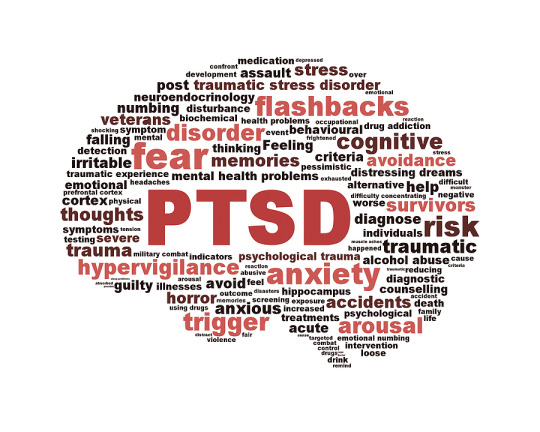Posttraumatic Stress Disorder (PTSD) makes people feel crazy. Really, really crazy. I am not even joking about this. Imagine living in a constant state of high alert or sensing danger all around you without knowing why. If you found yourself spacing out and not remembering what happened or wandering through life feeling disconnected from people and events around you, you might feel like you were losing your mind. I hear exactly that on a regular basis from people seeking help with trauma or symptoms of PTSD. Sometimes the individual doesn’t realize that what he or she experiences is the brain’s normal response to an abnormal situation. They do know that they feel scared, uncomfortable, or completely out of sorts. Often the client has never talked with anyone else about these feelings or experiences. I periodically hear from clients that they have never told anyone about their sense of hypervigilance or
disconnect, out of fear that they would sound crazy to others. (For more about this see my blog post about PTSD and the brain, here).

Early on in the therapy process for trauma I normalize these
experiences for my clients. I explain how our brains process trauma and give a name and a meaning to what’s happening. I also emphasize that my client is not alone; many people share the experience and just never tell anyone. Clients frequently feel great relief when they hear this. The relief becomes stronger when I tell them that we can fix this. They don’t have to spend the rest of their lives jumping out of their skin at the slightest noise, or with muscles tense and ready to spring. And if any of this sounds familiar to you, neither do you. You can heal. It can get better. Much, much better.
“You can heal. It can get better. Much, much better.”
The symptoms of PTSD most likely to make someone feel completely freaked out are derealization and depersonalization, two flavors of dissociation. I’ll explain a little about dissociation in general before digging into the other two. Let me start by saying that we all dissociate. Everyone. Any time you realize that you’ve spaced out during a conversation or
a lecture in class (who, me?), or you drive home on auto-pilot without really paying attention, that’s dissociation. Dissociation provides us humans with a fantastically superb coping mechanism. When we feel bored or tired or frightened, or anything else that we don’t want to feel, we can just “go away.” Dissociation allows us to simultaneously be “present” and “not present.” Pretty weird, huh? Also pretty cool.
Dissociation happens much more frequently for folks who’ve had a lot of trauma, especially childhood trauma, although not exclusively. When kids experience an unsafe situation and they can’t escape, they frequently dissociate. This allows them to disconnect from the experience. It’s an amazing survival technique. As adults, we may do the same thing during a traumatic event like a car accident or a mugging. Those who survived multiple traumatic
events or lived in constant trauma or chaos as children may spend a great deal of time in a dissociative state, sometimes without knowing it. Enter our little friends derealization and depersonalization.
Derealization is the experience of feeling disconnected from people and events around you. In a state of derealization the individual knows that she is on the same plane of existence as the rest of the world, but feels as if she isn’t. She may feel like she’s in a state of tunnel vision, or like she’s watching everything around her from a distance or as if it were a movie. Some people go in and out of derealization, depending on their level of stress and other factors, while others live in that state much of the time. It can feel quite bizarre.
“In a state of derealization the individual knows that she is on the same plane of existence as the rest of the world, but feels as if she isn’t.”
As disturbing as derealization can be, depersonalization cranks the freakiness factor up several notches. In a state of depersonalization the individual feels disconnected from his body. He may hear his own voice or see his own body movements but not feel as though he has control over them. He may know that he is the one talking and moving his body but not feel as though he is the one doing it. Sometimes people in a state of depersonalization forget what they look like or feel afraid to look in a mirror. Scary stuff. Yet, not unusual stuff. Which is why I make a point of spreading the word about this. I know some people wander through life feeling like they’re on some sort of a bad drug trip. Except they didn’t take anything and it doesn’t go away. If, as you read this, you think “Hmm, she just described me” I want to impress upon you that trauma doesn’t have to be a life sentence. The survival skill during a traumatic event becomes a liability when trying to live the rest of your life. Thank heavens for therapy.
“…trauma doesn’t have to be a life sentence.”
